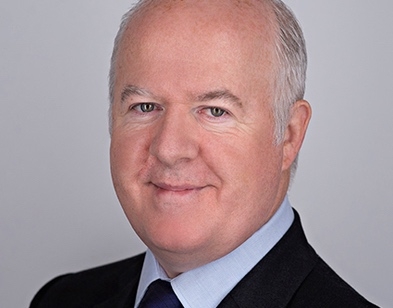The Consumer Duty is just over three months old and it’s already developing muscle to push through reform of the wealth management and Financial Planning sectors, particularly on fees.
Some advisers may have thought the Consumer Duty was just another piece of regulation to tick off. It seems not.
Two developments this week suggest the FCA sees the Consumer Duty as an important part of its strategy to foster better value advice and improved outcomes for consumers.
A 'Dear CEO' letter from the FCA and a report on adviser fees suggest change is the order of the day on fees and charges.
More of a kick from the regulator than a gentle nudge, I would say.
The FCA says it has found evidence that fees and ongoing charges do not always reflect the amount of work done and consumers need to see obvious evidence that they are getting “fair value.”
The FCA said it had seen evidence that some wealth managers charge high average fees and charge some individuals “very high fees.”
Separately a new report from Royal London, using commissioned research from the Lang Cat consultancy, found that 37% of financial advice firms have changed their fee structure as a result of completing the FCA’s Consumer Duty fair value exercise. A further 3% of firms, surveyed by provider Royal London, said they planned to make changes to their fees as a result.
These are not easy changes to make for many firms. One in five firms who had changed their fee structure found the changes needed were difficult, with a lot of work needed to comply with the new rules. Changing fees, of course, may often mean cutting them, a hard pill to swallow for many firms.
Despite the grunt work, 67% of the advisers surveyed agreed that the work needed to carry out the fair value assessments had been worthwhile.
So what do these two documents, the FCA Dear CEO letter, and the Royal London report, suggest?
They imply a few things. One is that the advice sector is taking the Consumer Duty changes very seriously although there is a very long way to go.
They also show that firms are reviewing their fees. We saw recently that major wealth manager St James’s Place will be scrapping exit charges in 2025 and making other changes although some fee changes will take many years to feed through. Perhaps too long.
For Financial Planners fee discussions are on the agenda, in all senses. Many could do more to make their fees transparent and publishing them on their websites would be a good start. Fee charges should never be a shock for clients so it's good to see most planners discuss fees up front.
However, there needs to be much better engagement with clients on the impact of percentage fees on returns and how advisers get paid. Clients understand that advisers need to be paid and understanding of all the fees that apply to their investments. In the past the culture in the financial services sector has been one of keeping fee disclosure to a minimum and this needs to change.
Based on my conversations with many Financial Planners I do believe most are committed to being open and far on fees with clients but that may not be enough.
One issue which needs to be tackled is: what is fair value when it comes to fees? The FCA will naturally be wary of setting specific numbers but it is difficult to see how complete progress can be made until there is some agreement on what is a fair fair and what is not. Is a 1% portfolio charge fair, is a 5% upfront fee ok? How much should a Financial Plan cost? More open discussion on numbers and sharing of information is necessary.
Planners have a new duty to put fees centre stage and shine the spotlight on an area until now often hidden in the shadows.
• If you haven't yet registered for Financial Planning Today do so now. Just click on a couple of stories to see the registration pop up. If you are already signed in go to 'My Account' (top right of the homepage) to view upgrade options.
Kevin O’Donnell is editor of Financial Planning Today and a journalist with 40 years of experience in finance, business and mainstream news. This topical comment on the Financial Planning news appears most weeks, usually on Fridays but occasionally other days. Follow @FPT_Kevin

